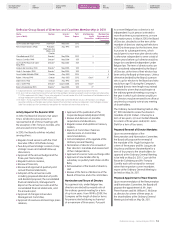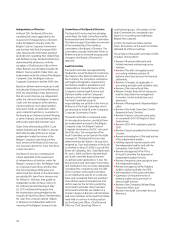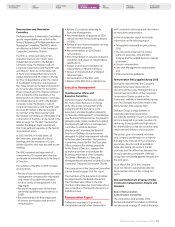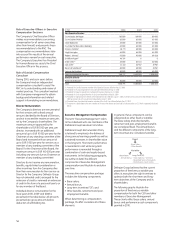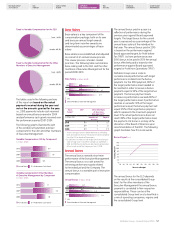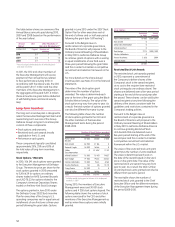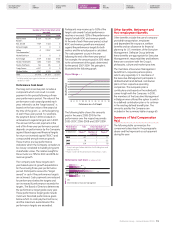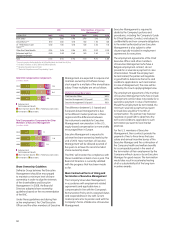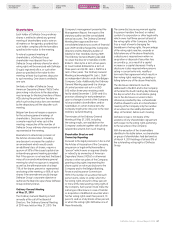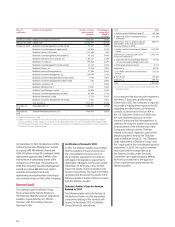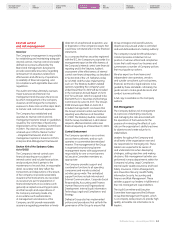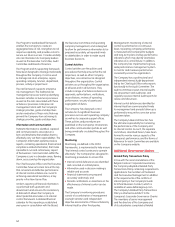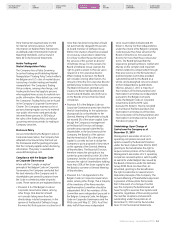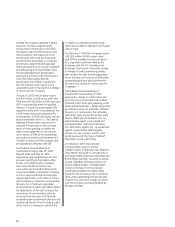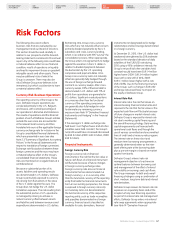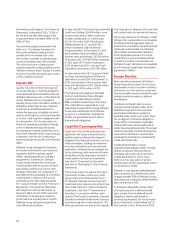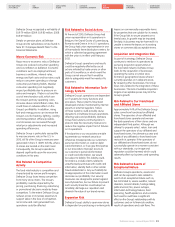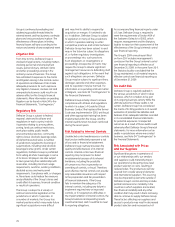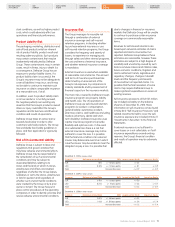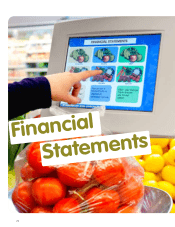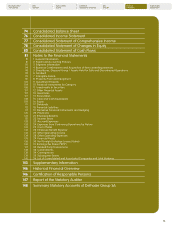Food Lion 2010 Annual Report Download - page 67
Download and view the complete annual report
Please find page 67 of the 2010 Food Lion annual report below. You can navigate through the pages in the report by either clicking on the pages listed below, or by using the keyword search tool below to find specific information within the annual report.
Delhaize Group - Annual Report 2010 63
DELHAIZE GROUP
AT A GLANCE OUR
STRATEGY OUR ACTIVITIES
IN 2010
CORPORATE
GOVERNANCE STATEMENT
RISK
FACTORS FINANCIAL
STATEMENTS SHAREHOLDER
INFORMATION
Internal control
and risk management
Overview
The Company’s management is responsible
for establishing and maintaining adequate
internal controls. Internal control is broadly
defined as a process effected by the
Board and management, designed to
provide reasonable assurance regarding
achievement of objectives related to (i)
effectiveness and efficiency of operations,
(ii) reliability of financial reporting, and
(iii) compliance with applicable laws and
regulations.
The Audit Committee ultimately oversees
major business and financial risk
management and discusses the process
by which management of the Company
assesses and manages the Company’s
exposure to those risks and the steps taken
to monitor and control such exposures.
The Company has established and
operates its internal control and risk
management systems based on guidelines
issued by The Committee of Sponsoring
Organizations of the Treadway Commission
(“COSO”). The internal control system
is based upon COSO’s
Internal Control
– Integrated Framework
, and its risk
management system is based on COSO’s
Enterprise Risk Management Framework
.
Section 404 of the Sarbanes-Oxley
Act of 2002
The Company’s internal controls over
financial reporting are a subset of
internal control and include those policies
and procedures that (i) pertain to the
maintenance of records that, in reasonable
detail, accurately and fairly reflect the
transactions and dispositions of the assets
of the Company, (ii) provide reasonable
assurance that transactions are recorded
as necessary to permit preparation of
financial statements in accordance with
generally accepted accounting principles,
and that receipts and expenditures of
the Company are being made only
in accordance with authorizations
of management and directors of the
Company, and (iii) provide reasonable
assurance regarding prevention or timely
detection of unauthorized acquisition, use
or disposition of the Company’s assets that
could have a material effect on the financial
statements.
As a company that has securities registered
with the SEC, the Company must provide (i) a
management report on the effectiveness of
the Company’s internal control over financial
reporting and (ii) the Statutory Auditor’s
assessment of the effectiveness of internal
control over financial reporting, as described
in Section 404 of the U.S. Sarbanes-Oxley
Act of 2002 and the rules implementing
such act. The Statutory Auditor’s related
opinions regarding the Company’s year
ended December 31, 2010 will be included
in the Company’s Annual Report on Form
20-F for such year, which is required to be
filed with the U.S. Securities and Exchange
Commission by June 30, 2011. The Group’s
2009 annual report filed on Form 20-F
included management’s conclusion that
the Group’s internal control over financial
reporting was effective as of December
31, 2009. The Statutory Auditor concluded
that the Group maintained, in all material
respects, effective internal control over
financial reporting as of December 31, 2009.
Control Environment
The Company operates in six countries
across three continents, and as such
operates in a somewhat decentralized
manner. The management of the Group
is organized around strong banner
management teams with assignment of
responsibility for one or more banners
to Executive Committee members as
appropriate.
The Company provides support and
coordination functions to all operating
companies and monitors selected
activities group-wide. The centralized
support functions include Internal and
External Communication, Corporate Social
Responsibility, Accounting and Finance,
Human Resources and Organizational
Development, Internal Audit, Information
Technology, Legal and Compliance, and
Strategy.
Delhaize Group also has implemented
policies and procedures that set forth the
governance of the Group to ensure that
Group strategies and overall business
objectives are pursued under a controlled
and well-defined decision-making authority.
The
Company’s Guide for Ethical Business
Conduct
provides a statement of our
position on various ethical and compliance
issues that could impact our business and
summarizes a number of Company policies
that must guide our actions.
We also expect our franchisees and
independent store operators, vendors
and outside consultants such as business,
financial, technical or legal advisors to be
guided by these standards. Ultimately, the
guide serves to make good decisions and
conduct business ethically.
A full copy is available on the Company
website.
Risk Management
The Company defines risk management
as a process of identifying, assessing,
and managing the risks associated with
the operations of the business for the
purpose of minimizing the effects of such
risks on the organization’s ability to achieve
its objectives and create value for its
stakeholders.
Leaders throughout the Company and
at all levels of the organization own and
are responsible for managing risk. These
leaders are expected to be aware of
and understand risk when developing
strategies, setting objectives and making
decisions. Risk management activities are
performed in many departments within the
Company including: Legal, Compliance,
Internal Audit, Quality Assurance and Food
Safety, Insurance, Claims Management,
Loss Prevention/Security, Health/Safety,
Information Security, Accounting and
Finance and Risk Management. These
activities support our leaders in fulfillment of
their risk management responsibilities.
The Audit Committee and Executive
Committee have approved the Delhaize
Group Risk Management Program, which
is a Company-wide process to provide high
quality, actionable risk information to its
leaders.


